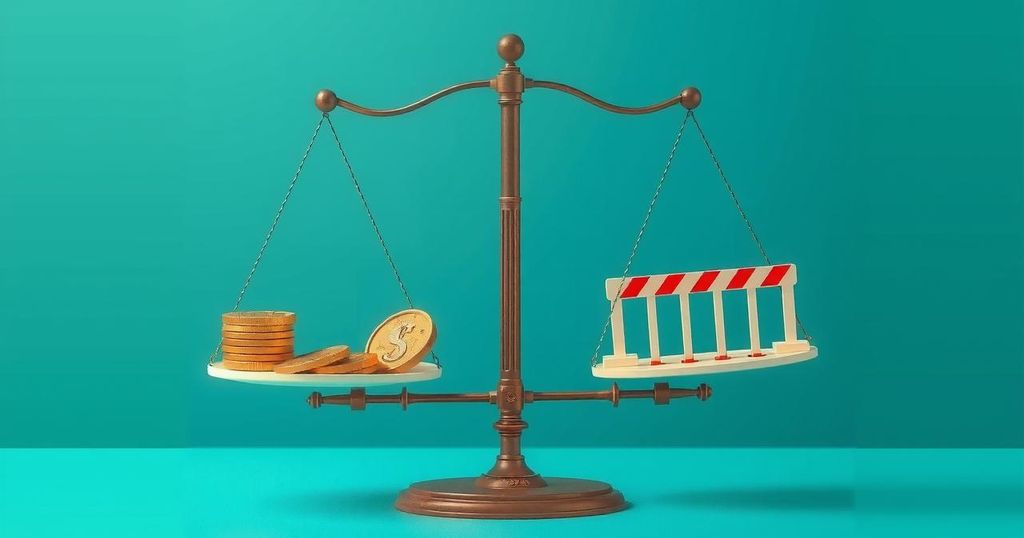India is preparing a trade response to proposed US tariffs set for April 2, as President Trump highlights unfair tariffs imposed by multiple countries, including India. Minister Piyush Goyal is in Washington to discuss trade issues, aiming for a Bilateral Trade Agreement. Experts suggest India may offer to eliminate tariffs on industrial goods from the US if similar concessions are made. Additionally, India faces scrutiny regarding labor practices in exports, which could affect trade relations.
In response to increased tariffs proposed by the United States, India is formulating a trade strategy as the April 2 deadline approaches. President Trump has addressed the need for tariff adjustments, identifying India alongside the European Union, China, and Canada as countries imposing higher levies. Commerce Minister Piyush Goyal is currently in Washington, aiming to address trading issues and facilitate discussions on a potential Bilateral Trade Agreement.
Both nations have agreed to negotiate a trade deal by the year’s end, with a target of achieving $500 billion in annual trade by 2030, established during Prime Minister Modi’s visit to the United States. Stakeholder consultations have commenced to evaluate the potential fallout of increased US tariffs and to explore options for India to reduce its own levies in priority sectors.
According to experts, India might propose the removal of tariffs on a majority of industrial products from the United States, contingent on reciprocal actions from the US concerning Indian goods. Ajay Srivastava from the Global Trade Research Initiative pointed out that India could include tariff lines, which already allow duty-free imports under current free trade agreements, while excluding agriculture from this offer.
While India’s average tariff on US goods is set at 7.7%, there remain significant disparities in specific sectors, particularly in minerals, textiles, and clothing, where tariffs exceed those of several other Southeast Asian nations. The US is expected to exert pressure on India to align its tariffs more favorably towards American products, impacting exports.
The repercussions of the potential tariff increases hinge on the existing tariff gaps, with concerns that the US might introduce additional non-tariff barriers that could further impede Indian exports. The Engineering Export Promotion Council emphasizes the importance of continual governmental backing in areas such as export credit and technological support to sustain competitiveness against these pressures.
Simultaneously, India is evaluating the implications of the US Trafficking Victims Protection Reauthorization Act on its exports, particularly in light of allegations regarding child labor in the textile industry. Inadequate measures to eliminate such practices could result in import restrictions from the US on affected goods. This consideration adds another layer of complexity to the ongoing trade discussions and paths forward for India.
As India navigates the intricate landscape of US tariffs and trade relations, the urgency to craft a strategic response is paramount. The ramifications of proposed tariff hikes could significantly impact key Indian sectors and necessitate reciprocal concessions. Continued government support and proactive engagement with the US is critical to mitigate potential adverse effects on exports, particularly in light of pressures surrounding labor practices. The coming weeks will be decisive as India aims to establish a robust trade framework ahead of the looming deadline.
Original Source: m.economictimes.com






